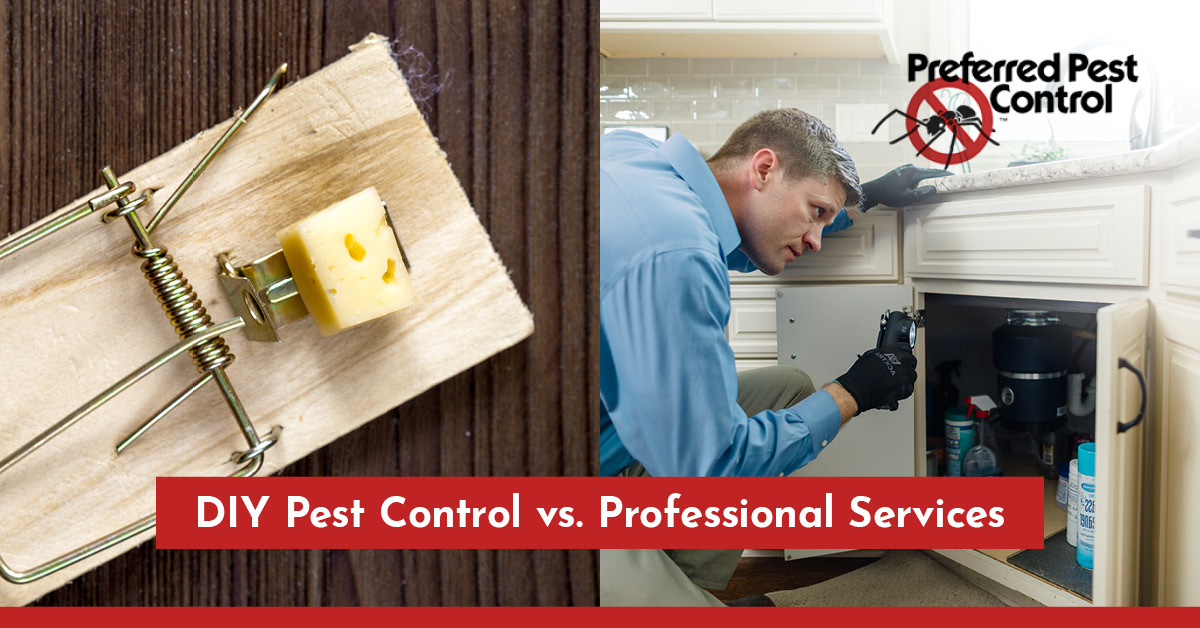Pest Control Clovis Done Right: Professional and Reliable
Pest Control Clovis Done Right: Professional and Reliable
Blog Article
Comprehending the Various Techniques to Pest Control: A Comprehensive Overview

All-natural Bug Control Approaches
Using environment-friendly methods such as companion growing and organic insect control is important for effectively taking care of bugs in agricultural setups. Buddy planting entails expanding different plants in distance to deter parasites, improve nutrient uptake, and improve total crop health.
Organic insect control involves presenting natural killers or pathogens to regulate pest populaces. Ladybugs, for example, eat aphids, controlling their numbers without the demand for chemical pesticides. One more instance is using Bacillus thuringiensis (Bt), a bacterium that targets certain insect pests while being safe to humans, pets, and advantageous pests.
These environmentally friendly approaches not only lower the reliance on artificial pesticides however additionally assist maintain biodiversity and soil wellness. By incorporating all-natural pest control approaches into farming techniques, farmers can accomplish lasting pest administration while decreasing negative influence on the environment.

Chemical Pest Control Solutions
Along with natural parasite control methods, the usage of chemical parasite control solutions plays a substantial duty in effectively handling pest populaces in farming settings. Chemical insect control options are created to target specific insects that may trigger substantial damages to plants. These solutions commonly have artificial chemicals that are designed to eliminate bugs promptly and efficiently.
One of the crucial benefits of chemical pest control services is their efficiency in managing parasite invasions on a big range. Farmers can use these remedies making use of various methods such as spraying, fumigation, or seed therapy to safeguard their plants from harmful insects, weeds, and conditions. In addition, chemical parasite control options are fairly simple to apply and can provide quick outcomes, assisting farmers protect their yields and decrease financial losses.
Nonetheless, it is necessary to utilize chemical pest control remedies sensibly to minimize possible negative influences on the atmosphere, non-target microorganisms, and human health and wellness. Proper application methods, adherence to safety standards, and regular tracking are essential to make certain the responsible usage of chemical insect control remedies in agricultural techniques.
Biological Bug Control Approaches
Organic parasite control approaches leverage natural predators or microorganisms to take care of parasite populaces in agricultural settings effectively. One common biological control method is the introduction of natural opponents, such as ladybugs or parasitical wasps, to target certain parasites.
One more organic control method involves making use of microorganisms like fungis, viruses, or microorganisms to infect and eliminate pests. Overall, organic pest control methods provide a lasting and targeted service to pest monitoring in agriculture.
Integrated Parasite Administration (IPM)
Integrated Parasite Monitoring (IPM) is a comprehensive approach that integrates various insect control techniques to efficiently manage and decrease pest populations in agricultural systems. IPM concentrates on long-lasting avoidance of pests through a mix of biological, social, physical, and chemical control methods. By incorporating these various approaches, IPM aims site link to decrease reliance on chemical pesticides, reduce environmental effect, and advertise sustainable pest management methods.
One trick facet of IPM is using organic controls such as natural predators, parasites, and microorganisms to manage bug populaces. This technique uses the power of nature to maintain a balance between bugs and their all-natural adversaries address without causing harm to the environment.
Furthermore, IPM includes social methods like plant environment, turning, and hygiene control to produce negative problems for bugs and interrupt their life process. Physical controls such as traps, barriers, and mulches are also utilized to avoid pest problems.
Physical and mechanical Parasite Control Strategies
Using non-chemical techniques, such as mechanical and physical bug control methods, is a critical facet of thorough parasite administration techniques, building upon the structure of Integrated Parasite Monitoring's alternative method. Mechanical pest control entails making use of physical obstacles or traps to stop pests from accessing and harming plants or structures. This approach can include methods like installing displays on windows, utilizing row covers in agriculture, or employing sticky catches to catch insects.
Physical pest control techniques, on the various other hand, focus on straight removing insects via physical ways. For example, making use of heat therapies to eliminate bed pests or vacuuming up insects like ants or spiders can be reliable ways to take care of infestations without the usage of chemicals. By integrating these mechanical and physical bug control techniques into an Integrated Parasite Management plan, people and professionals can reduce reliance on chemicals while still effectively lessening and taking care of pest populations damage.
Final Thought

In addition to all-natural bug control methods, the application of chemical bug control services plays a significant duty in efficiently taking care of pest populaces in agricultural settings.One of the essential benefits of chemical insect control solutions is their efficiency in controlling parasite invasions on a huge scale.Integrated Pest Monitoring (IPM) is an extensive strategy that integrates numerous insect control approaches to efficiently take care of and reduce pest populaces in agricultural systems.Using Homepage non-chemical approaches, such as mechanical and physical parasite control methods, is an essential facet of comprehensive bug monitoring techniques, constructing upon the foundation of Integrated Insect Monitoring's holistic method. By including these mechanical and physical insect control strategies right into an Integrated Insect Administration plan, professionals and people can reduce dependence on pesticides while still properly managing pest populations and reducing damage.
Report this page